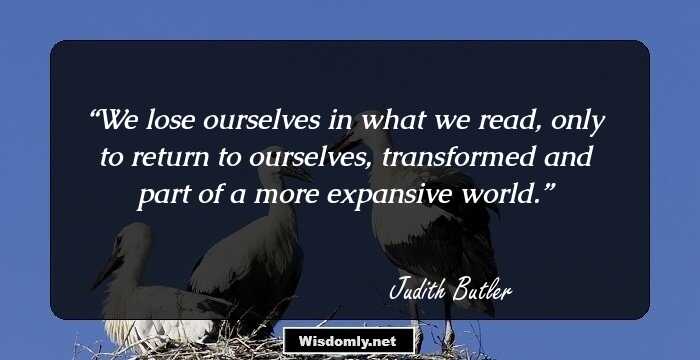26 Meaningful Quotes By John Rawls
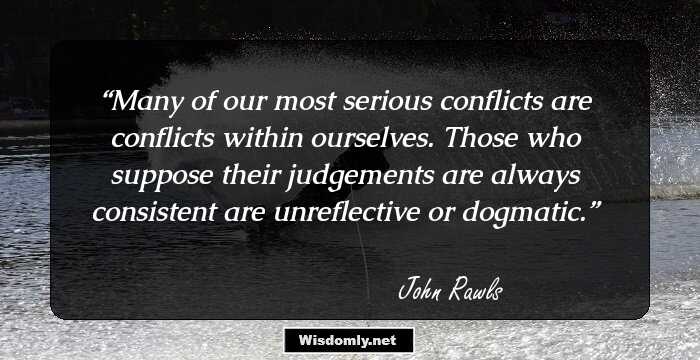
Many of our most serious conflicts are conflicts within ourselves. Those who suppose their judgements are always consistent are unreflective or dogmatic.
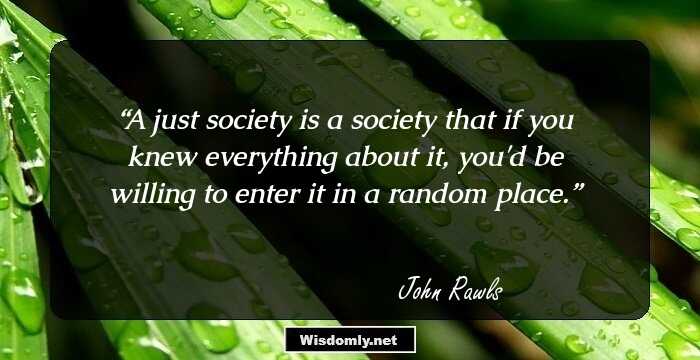
A just society is a society that if you knew everything about it, you'd be willing to enter it in a random place.
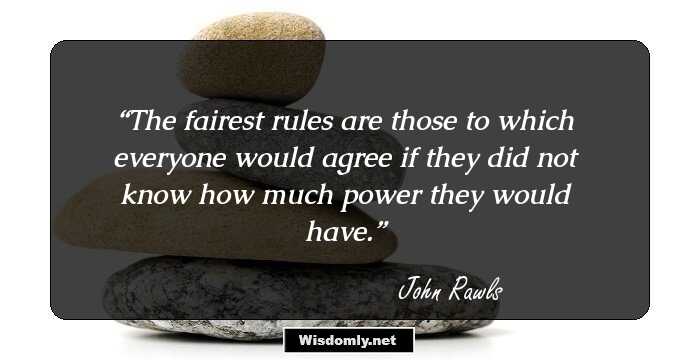
The fairest rules are those to which everyone would agree if they did not know how much power they would have.
The natural distribution is neither just nor unjust; nor is it unjust that persons are born into society at some particular position. These are simply natural facts. What is just and unjust is the way that institutions deal with these facts.
In all sectors of society there should be roughly equal prospects of culture and achievement for everyone similarly motivated and endowed. The expectations of those with the same abilities and aspirations should not be affected by their social class.
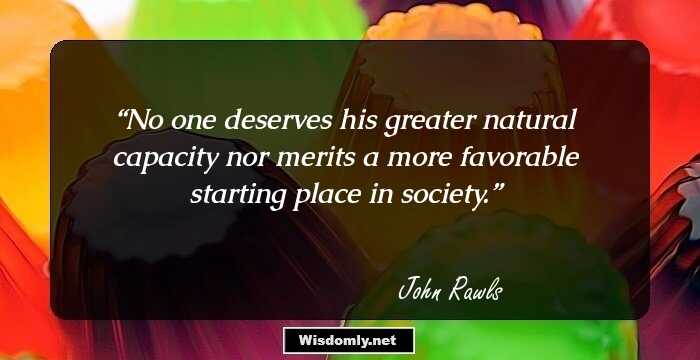
No one deserves his greater natural capacity nor merits a more favorable starting place in society.
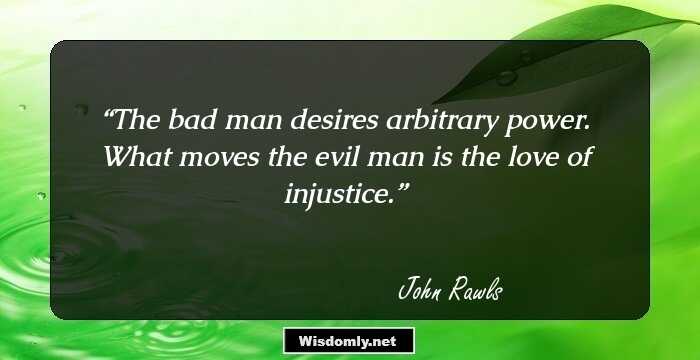
The bad man desires arbitrary power. What moves the evil man is the love of injustice.
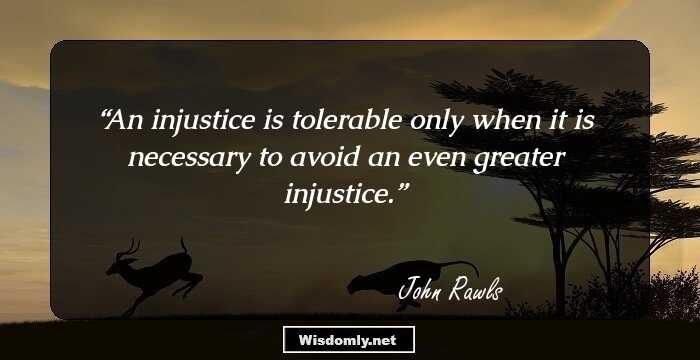
An injustice is tolerable only when it is necessary to avoid an even greater injustice.
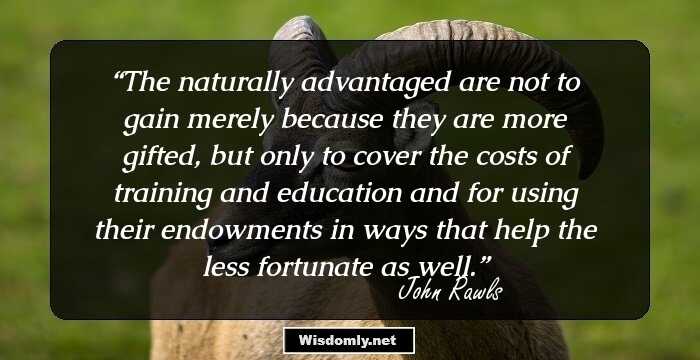
The naturally advantaged are not to gain merely because they are more gifted, but only to cover the costs of training and education and for using their endowments in ways that help the less fortunate as well.
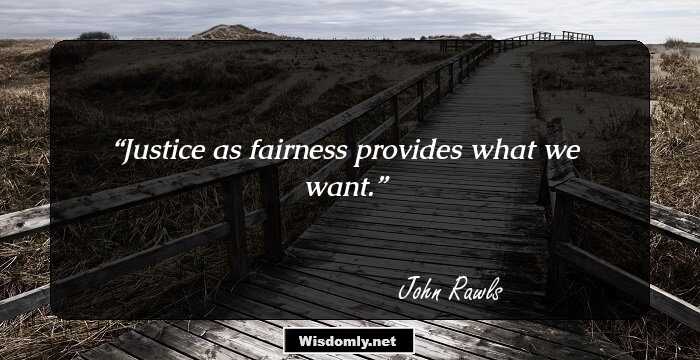
Justice as fairness provides what we want.
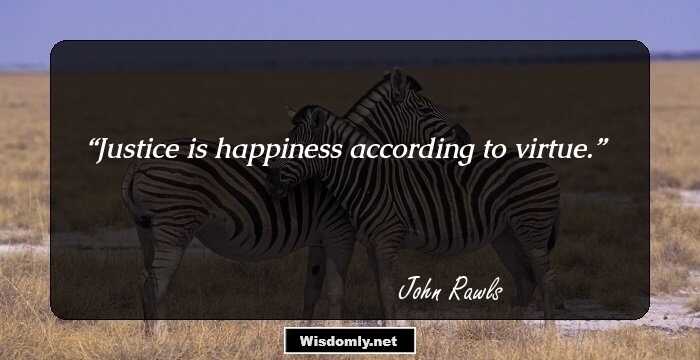
Justice is happiness according to virtue.
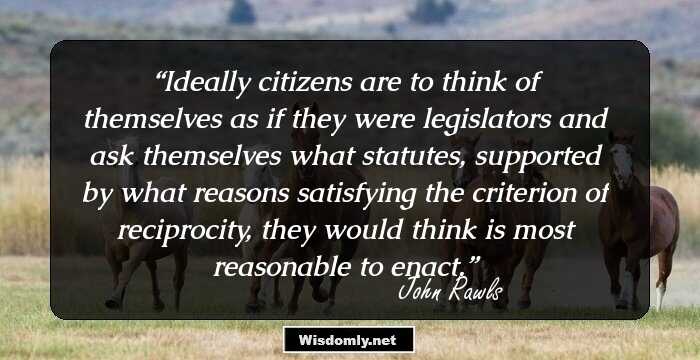
Ideally citizens are to think of themselves as if they were legislators and ask themselves what statutes, supported by what reasons satisfying the criterion of reciprocity, they would think is most reasonable to enact.
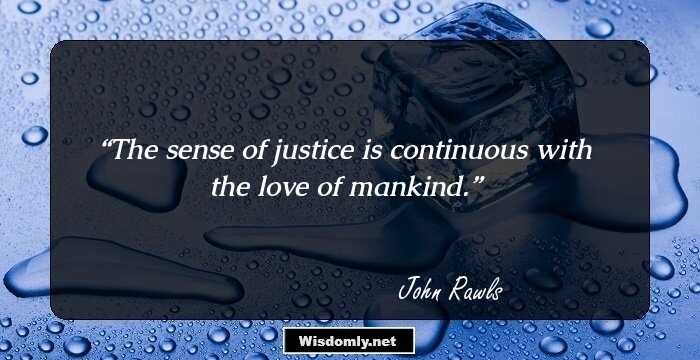
The sense of justice is continuous with the love of mankind.
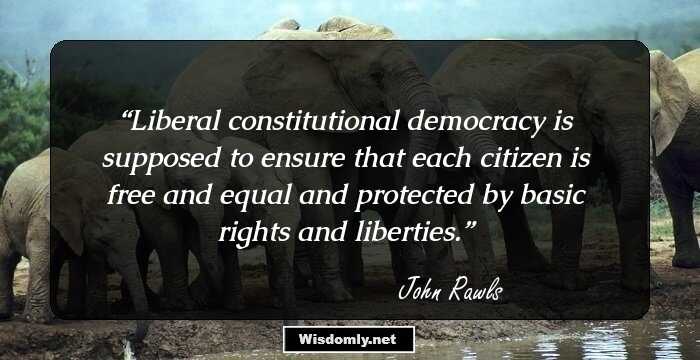
Liberal constitutional democracy is supposed to ensure that each citizen is free and equal and protected by basic rights and liberties.
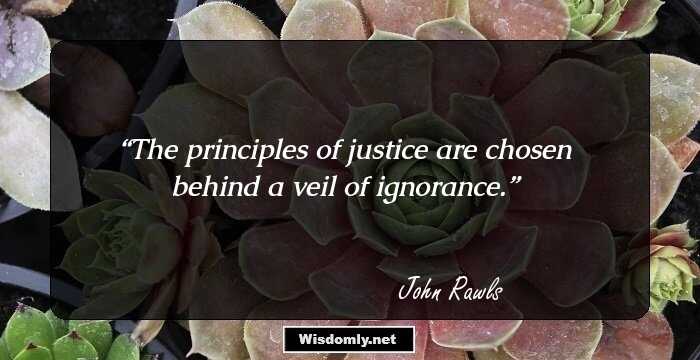
The principles of justice are chosen behind a veil of ignorance.
Justice is the first virtue of social institutions, as truth is of systems of thought. A theory however elegant and economical must be rejected or revised if it is untrue; likewise laws and institutions no matter how efficient and well-arranged must be reformed or abolished if they are unjust.
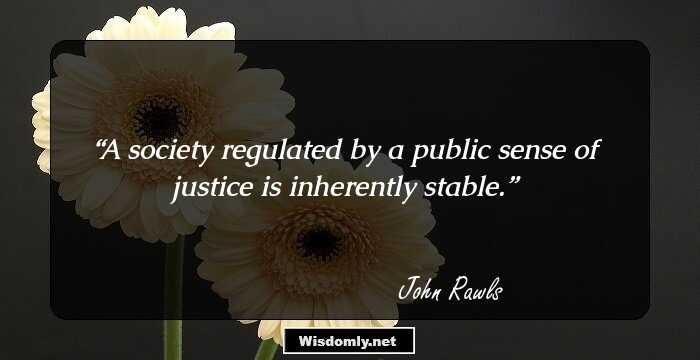
A society regulated by a public sense of justice is inherently stable.
Any comprehensive doctrine, religious or secular, can be introduced into any political argument at any time, but I argue that people who do this should also present what they believe are public reasons for their argument. So their opinion is no longer just that of one particular party, but an opinion that all members of a society might reasonably agree to, not necessarily that they would agree to. What's important is that people give the kinds of reasons that can be understood and appraised apart from their particular comprehensive doctrines.
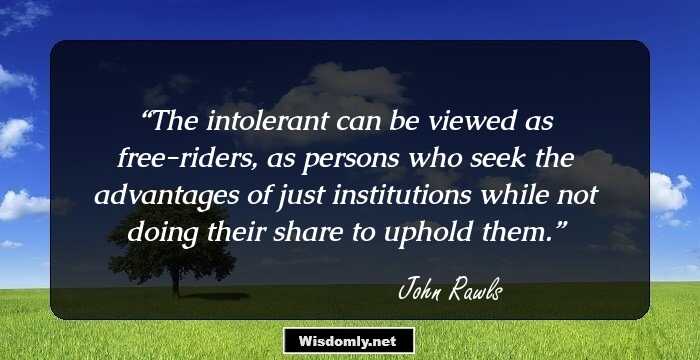
The intolerant can be viewed as free-riders, as persons who seek the advantages of just institutions while not doing their share to uphold them.
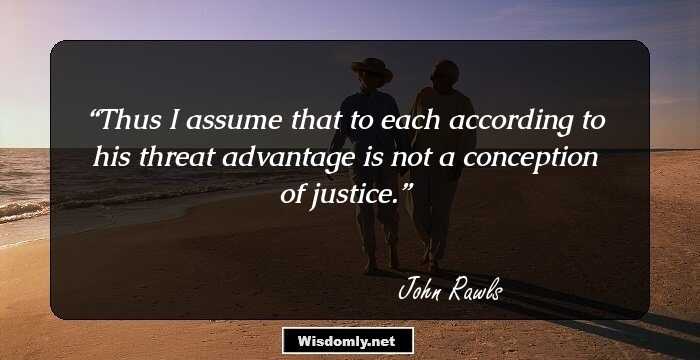
Thus I assume that to each according to his threat advantage is not a conception of justice.
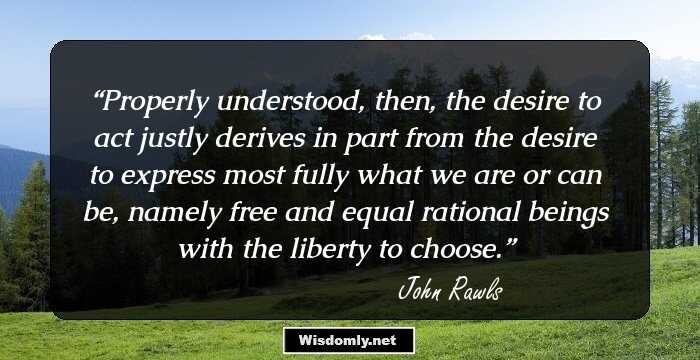
Properly understood, then, the desire to act justly derives in part from the desire to express most fully what we are or can be, namely free and equal rational beings with the liberty to choose.
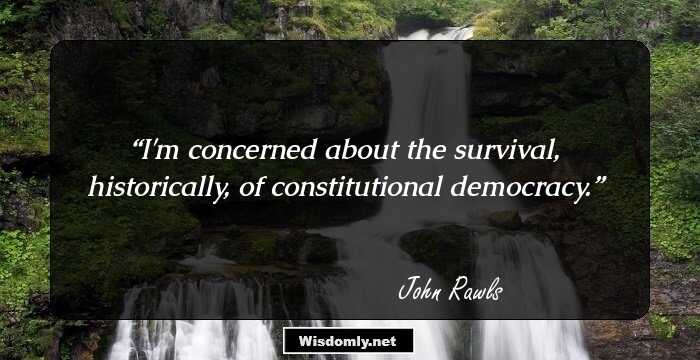
I'm concerned about the survival, historically, of constitutional democracy.
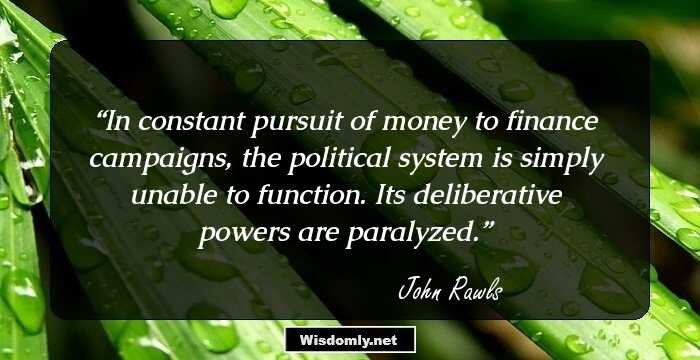
In constant pursuit of money to finance campaigns, the political system is simply unable to function. Its deliberative powers are paralyzed.
![[E]ach person is to have an equal right to the most extensive basic liberty compatible with a similar liberty for others.](https://www.wisdomly.net/images/quotes/john-rawls-28081.jpg)
[E]ach person is to have an equal right to the most extensive basic liberty compatible with a similar liberty for others.
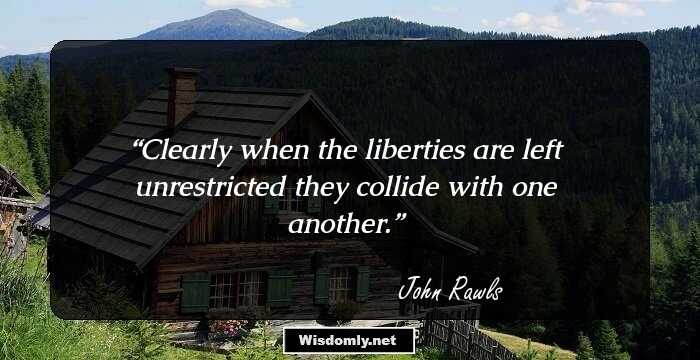
Clearly when the liberties are left unrestricted they collide with one another.
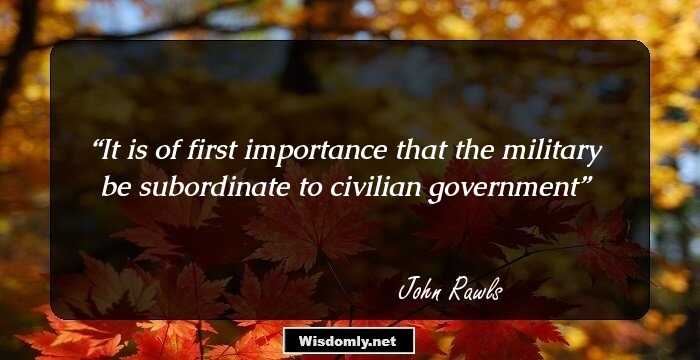
It is of first importance that the military be subordinate to civilian government





